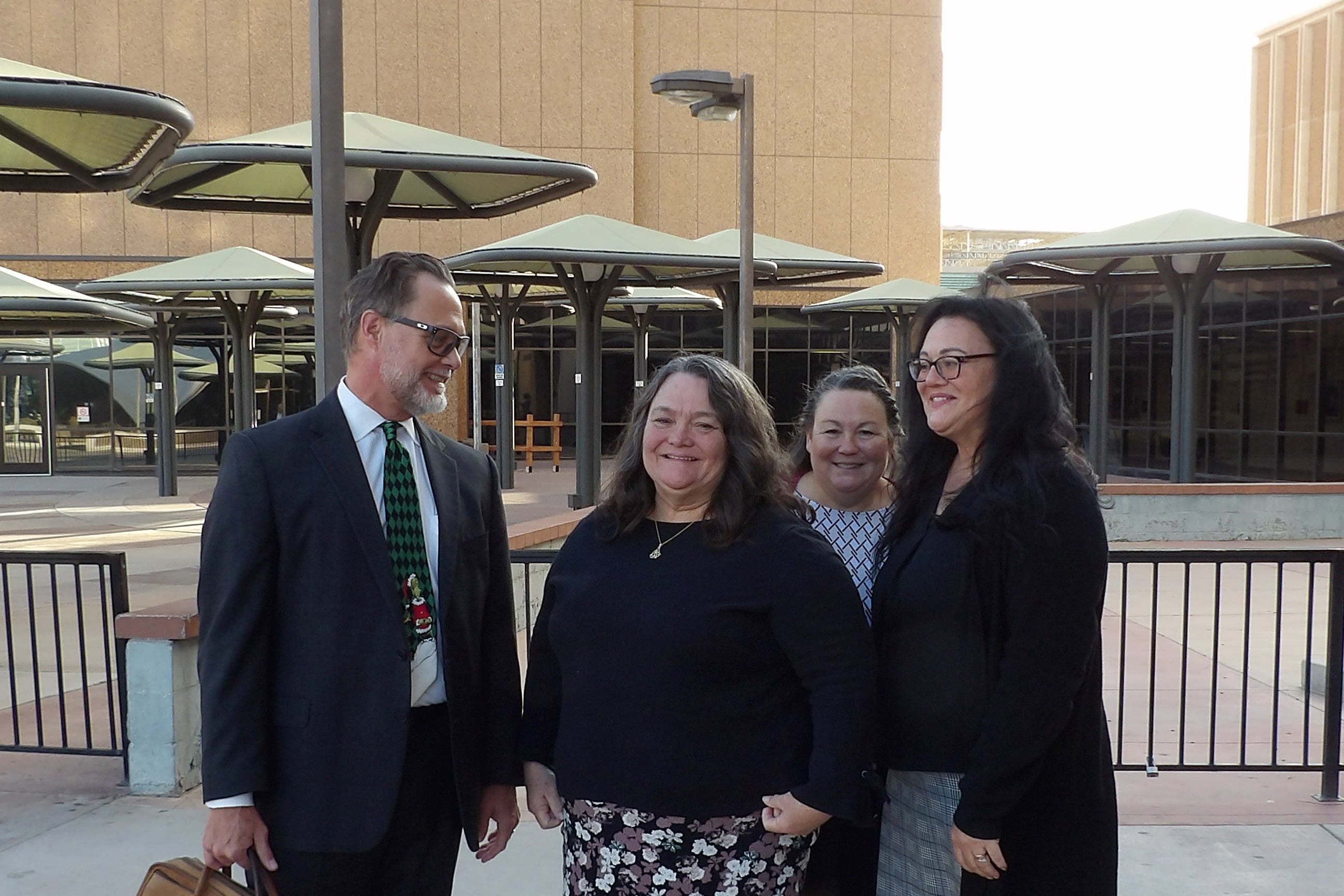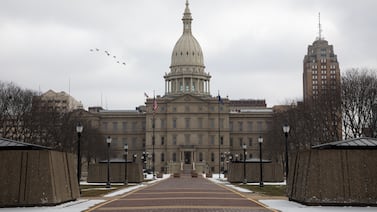Votebeat is a nonprofit news organization reporting on voting access and election administration across the U.S. Sign up for our free newsletters here.
Peggy Judd listened with interest in late November as Arizona state Sen. Sonny Borrelli urged county supervisors in an area he represents to hand-count ballots in the 2024 elections instead of using machines.
The Mohave County supervisors had been warned that doing so would be illegal. But Borrelli promised them that if they went ahead, “private individuals” would pay for a lawyer to represent them.
“The funding is already in place,” he said, declining to identify the private individuals.
Mohave supervisors nonetheless voted against hand-counting — but Judd, 61, a supervisor in southeast Arizona’s Cochise County, wondered if the offer of free legal help applied to her.
She could use it.
A year earlier, Judd and fellow Cochise Supervisor Tom Crosby had voted to expand their county’s hand-count audit of the 2022 midterm election ballots, and also to delay certification. The two Republicans have since been indicted by a state grand jury for alleged conspiracy and interference with an election officer, both felonies. According to recently filed court documents, prosecutors believe that in voting to expand the hand count, Crosby and Judd were attempting to delay or prevent the canvass.
Both officials deny the charge. A judge will hear oral arguments in the case on April 19.
Judd now says she was used by people who never intended to support her. Her experience could resonate with public officials around the country facing similar choices, and hearing similar promises about anonymous donors willing to pay legal expenses.
“I really need funding to help me in this case,” Judd said, but none has come from people like Borrelli who are pushing hand counts around the state.
“I’m pissed,” she said.
Judd has said little since the indictment. But in a recent interview with Votebeat, she said that after she was indicted, she got a call from her good friend Mohave County Supervisor Hildy Angius, offering help. Angius told her she had asked Borrelli to help as well.
Angius’ message to Borrelli, according to Judd, was: “Peggy needs your money. This is your chance to prove that you have unlimited amounts of money.”
Reached by phone this week, Angius said she couldn’t recall whether she spoke with Borrelli about Judd. She did say that she asked “everyone” to help Judd out, and that she herself gave Judd money for her legal defense.
Borrelli did not respond to two messages asking if he had offered Judd legal or financial support for her case.
“They don’t intend to help me,” Judd said, talking about Borrelli and the purported anonymous donor who had promised money to the Mohave supervisors.
“They think I am small beans,” she said. “I guess I am.”
In a later interview, she said she isn’t mad at Borrelli. But she is mad at people such as Mike Lindell, a prominent figure in the push to hand-count ballots, who often asks supporters for money to pay for these kinds of endeavors. She subscribes to Lindell’s emails, she said, and “it’s bitter to see him collecting every day for what I’m going through.”
Judd has raised about $3,500 toward her legal bills through an online fundraiser, and said her largest donations have been $500 or less. Angius is one of her top donors on the online fundraiser. She gave her $500 and wrote on the fundraising page: “This is about election integrity and State intimidation of local elected officials. This has got to stop now. Good luck Supervisor Judd.”
Judd also said that her role in the 2022 midterm election drama has been mischaracterized. She says she didn’t personally think there was a problem with the machines that counted the county’s ballots, and the only reason she voted to expand the county’s hand-count audit was that it was what her constituents wanted.
“I never pushed for it,” she said. “You can ask anyone. I never pushed for it.”
Judd said in 2022 that her vote with the supervisors to hand count all ballots after the machine count was meant to give everyone confidence and faith in the county’s elections. The hand count, she said, would provide “proof of good, positive, look our election system is great.”
“It was just to show them we have good machines. We have a good elections director. We have a good system here. You don’t have to be worried about Cochise County.”
With her trial approaching, Judd said she will be OK if she has to go to jail.
When the grand jury indictments came out, Judd’s husband was ill, and she said her main concern then was who was going to care for him. But he recently died.
“I will be sad, and upset,” she said, “but my husband won’t suffer because of it.”
Jen Fifield is a reporter for Votebeat based in Arizona. Contact Jen at jfifield@votebeat.org.





